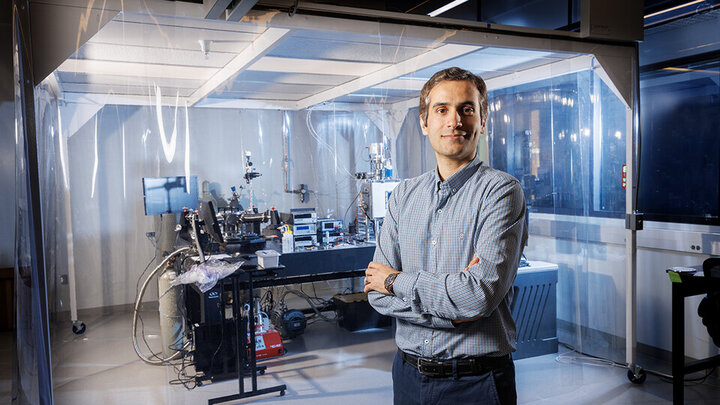Mohammad Ghashami is using a grant from the National Science Foundation to advance his work to understand the physics of energy transport in the miniaturized components that power today's most prized electronics. The research has the potential to propel the development of next-generation nanodevices.
The tiny electronic parts and pieces situated within smartphones, laptops and more can experience large amounts of excess heat through a process known as near-field thermal radiation.
Ghashami, assistant professor of mechanical and materials engineering, is studying this phenomenon in-depth, paving the way for strategies that would control and transform excess heat into an asset that could generate electricity, extend battery life and improve device efficiency. He recently received a five-year, $630,000 grant from NSF's Faculty Early Career Development Program to explore the physics of near-field thermal radiation in systems with multiple components. His research is innovative for its focus on multi-body systems — to this point, the bulk of the work has focused on two-component setups — and marks one of the first attempts to experimentally verify the physics of radiative heat transfer in these systems.




